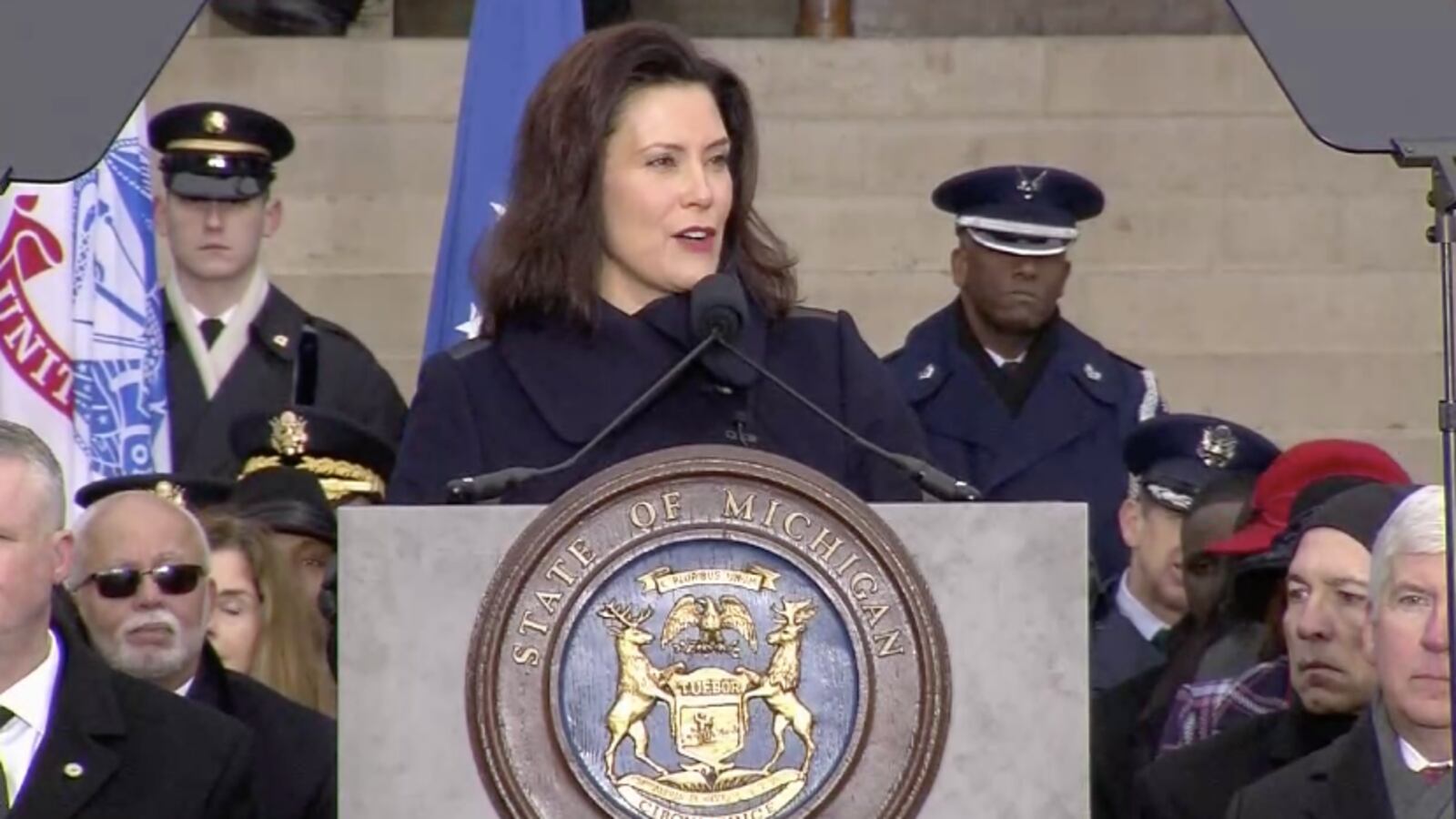Gov. Gretchen Whitmer on Monday used line-item vetoes to reject dozens of education programs proposed by the Republican-controlled state legislature, including a funding increase for charter schools and summer reading programs.
Whitmer’s education-related vetoes totaled $127 million, a small fraction of the $15.2 billion budget.
The legislature’s budget proposal included small increases in per-pupil funding for both charter schools and traditional public schools. Whitmer only vetoed the $35 million funding increase for charter schools.
Her targeting of charter schools, which have wide support among Republicans, is a likely indication Whitmer is trying to force more negotiations. Media reports indicate some of the non-education vetoes targeted funding for programs in communities that lean Republican.
“This is not the end of the conversation. It’s just the beginning,” she told reporters in a press conference Tuesday morning. Whitmer said that she wants to meet with legislative leaders on Thursday to discuss the next steps.
Mike Shirkey, the Republican Senate majority leader, said in a statement that he is in “no rush” to participate in what he called Whitmer’s “tug of war” over the budget.
Many education groups across the state strongly supported the budget that Whitmer proposed in March, which increased education funding by $500 million and allocated extra money to schools with more disadvantaged students.
The education budget passed by the Republican-dominated legislature included a smaller funding increase — roughly $300 million — and did not add new support for disadvantaged students.
School funding in Michigan has declined sharply in the last 15 years, when accounting for inflation.
Whitmer has said she vetoed items she deemed “legislative pork barrel,” and wants to iron out an agreement that would in part give schools the resources they need.
Supporting charter schools has long been a priority of top Republican lawmakers and donors, including U.S. Education Secretary Betsy DeVos. Whitmer’s veto provoked an angry response from charter school leaders.
“Gov. Whitmer just told 150,000 Michigan students that she doesn’t value them as much as other students, and that’s outrageous,” said Dan Quisenberry, president of the Michigan Association of Public School Academies.
Charter schools in Michigan are public schools and receive public dollars. Most contract with private companies to perform functions such as hiring teachers and choosing curriculum. Roughly 10% of students in Michigan attend a charter school, more than the national average of 6%.
Whitmer’s decision to strike down charter school funding comes as something of a surprise, given that her education policies so far have virtually ignored charter schools. During an election season that saw many Democratic candidates support bans on new charter schools, Whitmer limited her criticism to schools that contract with for-profit companies. One of her top advisers is Doug Ross, who founded a network of charter schools in Detroit.
The budgets needed to be signed by Oct. 1 to avoid a government shutdown. Whitmer and legislative leaders can continue to reshape the budget after that deadline through a process that allows for adjustments to budgets after they’ve been signed.
The cuts include:
- $15 million for career and technical education equipment
- $10 million for securing schools against armed intruders, which was distributed in part through a grant program run by the Michigan State Police
- $15 million for summer reading programs aimed at third-graders who scored “not proficient” on the statewide English exam
- $2.5 million for the development of “value added” metrics, which are used to measure individual teachers’ performance based on their students’ test scores
- $800,000 for Teach for America
Some education groups released statements supporting the move, saying they support Whitmer’s broader goal of reshaping the state education budget to add support for English learners, students with special needs, and students from low-income families.
“Governor Whitmer’s bold actions to support our schools are welcomed and encouraging as we work to create a school funding formula that truly meets the needs of our students,” said Dr. Russell Pickell, Superintendent of Riverview Schools, in a statement.
Paula Herbart, president of the Michigan Education Association, offered a slightly different perspective in a statement Tuesday afternoon, saying Whitmer didn’t just veto “pet projects,” and “vendor contracts.”
“There are meaningful education programs and initiatives that were also cut,” Herbart said. “Those are tough choices to make, but it is important to remember that many of those initiatives were fully funded in the transformational education budget the governor proposed back in March.”
Herbart urged both sides to negotiate, “not only to provide funding to many of these vetoed programs, but more broadly to fix our broken school funding system and provide every student the resources they need and deserve.”

